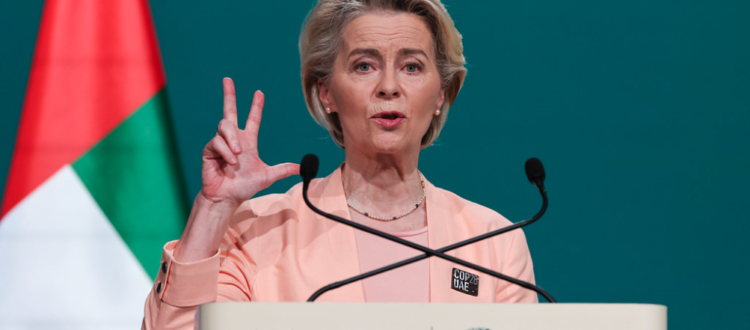COP28, HERE IS THE “GLOBAL PLEDGE”, THE COMMITMENT TO TRIPLE RENEWABLES AND DOUBLE ENERGY EFFICIENCY BY 2030
- The Global Renewables and Energy Efficiency Pledge was launched at COP28 in Dubai.
- Presented by the EU and the COP Presidency, it was signed by 118 countries, among which China and India do not currently appear.
- Meanwhile, the data confirms that 2023 was the warmest November ever recorded: it is a record for the sixth consecutive month.
It had been in the air for several weeks even before the start of work in Dubai, but the confirmation has finally arrived: the European Union and the Presidency of COP28 have launched the Global Renewables and Energy Efficiency Pledge.
Signed by 118 countries (but without China and India at the moment), the “Global Pledge” sets the goal of tripling the installed capacity of renewable energy, reaching at least 11 terawatts (TW), and doubling the rate of improvement of global energy efficiency from around 2% to an annual rate of 4% by 2030.
From what was announced during the World Climate Action Summit, the commitments are in line not only with what had been anticipated by the EU itself, which had made these commitments an important part of its position precisely for the COP28 in Dubai, but also with the request-appeal of the IRENA (the International Renewable Energy Agency, led by the Italian Francesco La Camera) which supported this initiative together with the IEA (the International Energy Agency).
For the President of the European Commission, “with this global commitment, we have built a broad and strong coalition of countries committed to the transition towards clean energy: large and small, North and South, large emitters, developing nations and small island states”. Ursula von der Leyen also announced that over the next two years the European Union will invest 2.3 billion euros from its budget, “to support the energy transition in our region and around the world”.
For the Director General of IRENA, Francesco La Camera, the “decision unequivocally confirms the central role that renewable energies play in addressing the climate emergency. As the most accessible and cost-effective solution, renewable energy is at the forefront of climate action, offering a path to improve energy access, security and affordability.” La Camera added, however, that “the commitments must now be translated into concrete actions considering the different national circumstances. The upcoming round of contributions determined at the national level in 2025 represents an excellent opportunity to take a transformative leap forward.”
This position also emerges in the “Global Pledge”, according to which “participants are committed to undertake broad national actions to contribute to its achievement, including adopting ambitious national policies on renewable energy and energy efficiency and reflecting this ambition in the NDCs, collaborating with cities and subnational governments, focusing on the most relevant tools and enabling factors at national and local levels.”
The document also recognizes the “need to strengthen the international collaboration on renewable energy and energy efficiency” and other points of the document represent critical issues highlighted in Dubai by developing countries.
At this point, beyond the announcements, it will be important to verify whether, how and how strongly these objectives will be written on December 12th in the final decision of COP28, to confirm or not the real willingness of the Parties to commit.
On the scientific front, however, data continues to show an increasingly pressing global warming: last November, according to JRA-55 data, was the hottest November ever. And it is the sixth consecutive time, since last June, that each month has been the warmest on record according to Copernicus’ ERA5 data relating to global surface temperature.
Even global climate science, starting from the IPCC in its reports, has been communicating for years that renewable energies (in particular solar photovoltaic and wind) are the most effective technologies in reducing emissions and the most efficient in terms of related costs. Therefore, not only should the commitments of the Global Renewables and Energy Efficiency Pledge forcefully enter into the final decision of COP28, but they should also be real and immediately implemented.
Furthermore, renewable sources should replace fossil fuels, which are the main cause of global warming, and not add to them.
There is no more time for announcements as an end in themselves: 2030 is only seven years away.
Article by Paolo Della Ventura, volunteer of the Italian Climate Network
Cover photo: UNFCCC COP28 / Mahmoud Khaled

